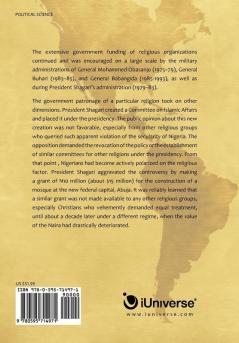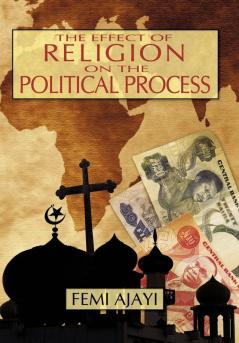English
Hardback
₹2656
(All inclusive*)
Delivery Options
Please enter pincode to check delivery time.
*COD & Shipping Charges may apply on certain items.
Review final details at checkout.
Looking to place a bulk order? SUBMIT DETAILS
About The Book
Description
Author
Nigerians Are Troubled About The Capability Of Political Institutions In Nigeria To Curb Religious Threats Thus Maintaining Security With Minimum Damage In Preventing The Occurrence Of Religious Eruptions. The Study Examines The Debate On Institutionalizing The Islamic Law Referred To As Sharia At The Federal Level. The Book Ascertains The Impact Of Religion (And Ethnicity) On The Nigerian Political Institutions Especially The Executive Arm Of The Government. The Study Examines The 1977 And 1988 Sharia Debates At The Constituent Assemblies. Specific Issues Were Addressed In The Book Such As The Organization Of Islamic Conference Federal Government Appointments Religious Pilgrimages The Use Of Arabic On Nigerian Currencies Public Holidays Work-Free Friday And The Religious Leaders Which Affected The Peaceful Coexistence Among Nigerians Since The 1977 Sharia Debate At The Constituent Assembly. The Findings Revealed That Nigerians Were Discontented With Their Political Leaders Over The Use Of Religion In The Public Places. In Addition To That Some Nigerian Religious Leaders Infiltrated Intra- And Interreligious Conflicts In Nigeria. However The Prospect Of Nigeria As A Nation Lies With The Leadership And Followership. The Study Concludes That People'S Mentality Determines The Type Of Leaders They Want Which Is Responsible For Nigeria'S Self-Inflicted Problems.
Delivery Options
Please enter pincode to check delivery time.
*COD & Shipping Charges may apply on certain items.
Review final details at checkout.
Details
ISBN 13
9780595714971
Publication Date
-27-03-2009
Pages
-296
Weight
-492 grams
Dimensions
-152x229x20.64 mm











